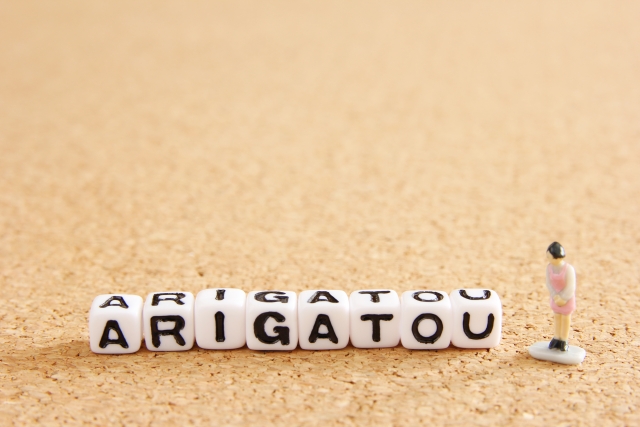 Hi,I’m Keiko from Osaka!
Hi,I’m Keiko from Osaka!
As you travel in Japan, don’t you wish you speak a bit of Japanese?
Many people in Japan do speak a little bit of English but we are so shy to try speaking!
This makes it difficult for our foreign travelers to get acquainted with the locals.
Becoming connected with the locals is one of the highlights of the travel for many tourists.
If you can pick up a few easy Japanese phrases, it can make the locals feel at ease and can spark an interesting conversations with the locals.
In this article, I will introduce you to 10 common Japanese greetings that you can easily remember.
Master a few of these as an ice breaker, I am sure they will enrich your experience of traveling in Japan!
10 Common Phrases in Japanese Greetings
1.Hajime Mashite/初めまして
The first phrase I will introduce you is “Hajime mashite.”In English this is often translated as “it’s nice to meet you” or “how do you do?”
This is used when you first meet someone new,
“Hajime” literally means “for the first time” and “mashite” is to make the sentence polite.
This phrase literally means, “it is the first time meeting you.”
Why don’t you start your conversation with “Hajime mashite” and I am sure you can put listeners’ at ease.
2.Ohayo or Ohayo Gozaimasu/おはよう、おはようございます
It is translated in English as “Good morning” and this is how the Japanese greet in the morning.It is almost pronounced as “Ohio” as in one of the States in U.S., so it should be pretty easy to remember especially for those coming from North America.
Difference between “Ohayo” and “Ohayo Gozaimasu” is that the first one is a fairly casual form, while the latter is more polite.
But don’t worry too much about the politeness if you are not used to Japanese, and just go with the friendly, “Ohayo!”
3.Konnichiwa/こんにちは
I am sure many already know what this means.“Konnichiwa” means “Hello” or “Good afternoon”
You can also use this term when entering a store or a restaurant during day time.
4.Ogenki Desu Ka?/お元気ですか?
This means “How are you?”The short casual version is “Genki?”
The full “Ogenki desu ka?” is a polite way of asking how the person is.
“Genki” genrally means “healthy” “energetic” or “fine.”
It is a versatile word since you can use “genki” to describe a state of both physical and mental health as well as a personality.
Once you memorize this word, a conversation is easy.
“Genki?” or “O genki desu ka?” and the response following that can also be “Genki!” or “Genki desu.”
5.Konbanwa/こんばんは
This is for a greeting in the evenings as in “Good Evening!”Now you know the complete set of greetings in the morning (Ohayo Gozaimasu), daytime “Konnichiwa” and at night “Konbanwa.”
6.Oyasumi Nasai/おやすみなさい
This means “Good night.”Just like a English greeting, we use it before going to bed or when departing with someone late at night.
A shorter and casual version of the greeting is “Oyasumi!” as “nasai” is a term to make the greeting polite.
7.Sayonara/さよなら
Perhaps this is another famous phrase that many of you might know already.This means “Good bye!” or “Bye!”
8.Sumimasen/すみません
This is a very versatile word in Japan where the population seems to apologize a lot for everything…!This means either “Excuse me” or “I am sorry.”
We use this when calling an attention of someone (ex. store clerk, restaurant staff, passer-by), when we bump into someone, or when we want to pass through somewhere crowded.
If you haven’t noticed, we say “sumimasen” a lot… even where “Thank you” seems to be rather natural response.
For example, when someone picks up something we dropped, when someone opens a door for us, or even when someone gives us something nice, we often say “sumimasen” instead of “thank you.”
Though many of you probably think this is strange, we are saying “excuse me” or “I’m sorry” mainly for causing that person a trouble.
I guess, it is just the difference of culture.
9.Onegai Shimasu/お願いします
This generally means “Please.”This is a bit difficult term to use for foreigners since it has different meanings.
“(O)negai” means “wish” and “shimasu” is a formal word for “to do.”
So we can use this to ask a favor from someone.
This term is also used to express honor and respect to an opponent in a game or a match.
Also, often combined with another term “yoroshiku (meaning kindly),” we also use this when being introduced or meeting with someone new to indicate “kindly, please take care of me” though we use it exactly as how English speakers would use “Nice to meet you.”
10.Arigatou or Arigatou Gozaimasu/ありがとう、ありがとうございます
This can perhaps be the most important phrase you can remember while traveling in Japan.This signifies “thank you” or “thank you very much.”
The latter is more polite and formal, though the former is perfectly fine to use in daily situations.
When someone assist you, when you shop, when you finish eating and departing restaurant, say “Arigato” and you will be appreciated.
Thank your for reading! Arigatou-
For your information
If you’re looking for unique activities and experiences in Kyoto,you can find them here:
There are also a variety of unique food tours in Osaka.
Dotonbori Food Crawl & Food Sample Tour:
If you want to try Izakaya and other finest Osaka’s food, try Osaka Bar Hopping Food tour with Magical Trip.
Osaka Bar Hopping Food Tour in Namba:
They’ll get to experience authentic Osaka foods and drinks by pub crawling local izakaya bars that travelers normally couldn’t find.
There are also a variety of unique food tours in Osaka.
Dotonbori Food Crawl & Food Sample Tour:
If you want to try Izakaya and other finest Osaka’s food, try Osaka Bar Hopping Food tour with Magical Trip.
Osaka Bar Hopping Food Tour in Namba:
They’ll get to experience authentic Osaka foods and drinks by pub crawling local izakaya bars that travelers normally couldn’t find.
